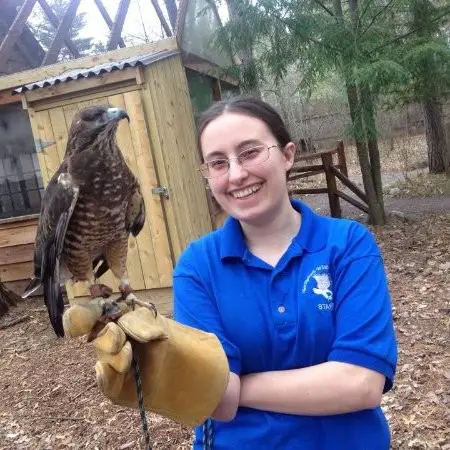Do Hawks Eat Owls?
Yes, hawks can eat owls, but this is rare and usually happens under specific circumstances. Hawks typically target young, injured, weak, or old owls rather than healthy adult owls. Adult owls possess acute eyesight and hearing, along with sharply curved beaks and powerful talons, making them formidable opponents. Therefore, hawks generally avoid attacking adult owls due to the high risk involved.
Detail hawks forum
However, territorial disputes can sometimes lead hawks to attack owls. In such cases, hawks may engage in aggressive behavior to defend their territory. Even so, this remains an uncommon sight as hawks prefer easier prey.
On the other hand, owls have few natural predators due to their strong defensive attributes. While hawks are capable of preying on owls, they usually focus on baby owls which are more vulnerable and pose less of a threat.
Do Hawks Eat Dead Animals?
Why Are Hawks Afraid Of Owls?
Despite their prowess, hawks often exhibit fear towards owls. Understanding why requires an exploration of the behaviors, physical attributes, and ecological interactions between these two raptors.
Physical Attributes and Strength
Owls possess several physical advantages that can intimidate hawks. Owls are generally more robust and have powerful talons and beaks designed to tackle larger prey, including other birds of prey. Their ability to silently approach due to specialized feather structures allows them to catch their prey, including hawks, off guard.
Territorial Aggression
Owls are highly territorial, especially during the breeding season. They fiercely protect their nesting sites and will attack any perceived threats, including hawks. This aggressive behavior is often enough to deter hawks from venturing too close to an owl’s territory.
Nocturnal Predation
Owls are nocturnal hunters, giving them a significant advantage over diurnal hawks, who are less active and more vulnerable at night. Owls can attack resting hawks, who are less capable of defending themselves in the dark. This nocturnal predation adds to the hawks’ apprehension towards owls.
Do Hawks Eat Foxes?
Predatory Behavior
In some ecosystems, larger owl species, such as the Great Horned Owl, have been known to prey on smaller raptors, including hawks. The awareness of owls as potential predators instill a natural fear in hawks, causing them to avoid areas where owls are known to reside.
Evolutionary Adaptations
Over time, hawks have evolved to recognize owls as threats. This recognition is a survival mechanism, helping hawks to avoid potentially deadly encounters. The fear of owls is an ingrained behavior passed down through generations to ensure survival.
Do Hawks Eat Bats?
How hawk hunt owl?’
Hawks are adept predators with various hunting strategies tailored to their prey, including owls. While it’s rare for hawks to target owls, their tactics are strategic and efficient when they do specifically.
Daytime Advantage
Hawks primarily hunt during the day, utilizing their exceptional vision. Owls, being nocturnal, are at a disadvantage in daylight. Hawks leverage this by attacking when the owl is less active, and its vision is not optimized for bright conditions.
Stealth and Surprise
Hawks often employ stealth and surprise in their attacks. They silently approach their prey, using natural cover such as trees and bushes to stay hidden. When targeting an owl, a hawk will wait until the owl is resting or distracted, ensuring a successful ambush.
Do Hawks Eat Fish?
Aerial Tactics
Hawks are masters of the air, using their superior flying skills to outmaneuver owls. They can swoop swiftly from great heights, using their powerful talons to seize the owl before it can react. This aerial advantage is critical in overpowering an owl, which might be slower to take off or defend during the day.
Territorial Disputes
In some cases, hawks may target owls as part of territorial disputes. Both species can be territorial, and if an owl encroaches on a hawk’s hunting ground, the hawk may attack to drive it away. This behavior ensures that the hawk maintains control over its resources.
Strength and Speed
Hawks rely on their physical attributes—strength and speed—to hunt effectively. They have powerful talons and beaks designed to quickly grasp and kill their prey. When hunting an owl, these physical traits enable the hawk to inflict serious damage swiftly, minimizing the chance of a prolonged struggle.
Do Hawks Eat Mice?
FAQ’S
What Are Hawks Afraid Of?
Here are the primary factors that hawks are afraid of
Larger Predators
Hawks are wary of larger birds of prey and terrestrial predators. Eagles, owls, and some larger hawk species can pose a significant threat, particularly to smaller hawks. Mammals like foxes and raccoons may also target hawks, especially their eggs or young ones.
Humans
Human activity is a significant source of fear for hawks. Human presence often disturbs them, especially if it involves loud noises or sudden movements. Hawks also tend to avoid areas with heavy human traffic or construction.
Loud Noises
Unexpected and loud noises can startle hawks. This includes gunshots, fireworks, and even loud machinery. Such noises can cause them to abandon their nests or hunting grounds temporarily.
Changes in Their Environment
Hawks are sensitive to changes in their environment. Habitat destruction, such as deforestation or urban development, can drive them away from their usual territories. They are also cautious of new structures or objects introduced into their habitats, such as wind turbines and tall buildings.
Flock Defense
While hawks are powerful hunters, they can be driven away by the collective defense mechanisms of smaller birds. Species like crows, ravens, and even small songbirds will band together to mob a hawk, making it uncomfortable and forcing it to retreat.
Are Hawks Afraid of Humans?
Yes, hawks are generally afraid of humans. As natural predators, hawks, including humans, are instinctively cautious and avoid potential threats. They exhibit avoidance behavior, often keeping their distance from areas with high human activity. This avoidance helps them minimize encounters and possible conflicts with humans, which could pose a risk to their safety. However, like any wild animal, individual hawks may vary in their fear or tolerance towards humans based on factors such as their past experiences and habitat. Overall, though, their instinct is to avoid human presence whenever possible.
Are Hawks Afraid of Eagles?
Yes, hawks are often wary of eagles. Eagles are larger birds of prey and can directly threaten hawks, particularly smaller or younger ones. When hawks encounter eagles in their territory, they may exhibit avoidance behavior, such as flying away or seeking cover. This wariness of eagles is a natural instinct for hawks to protect themselves from potential harm. Additionally, competition for food and territory between these two species can further contribute to the cautious behavior exhibited by hawks in the presence of eagles.
Can a Rooster Fight off a Hawk?
Roosters can be quite protective and often attempt to defend their flock against predators like hawks. When a hawk approaches, a rooster may sound the alarm with loud crowing and try to intimidate the hawk by puffing up its feathers and confronting it head-on. Roosters have sharp spurs on their legs, which they may use as weapons in a fight against a hawk, aiming to peck and kick at the predator to drive it away.
However, whether a rooster can successfully fight off a hawk depends on various factors, such as the size and aggressiveness of the hawk, the breed and size of the rooster, and the specific circumstances of the encounter. In many cases, a rooster’s efforts may be enough to deter a hawk and protect the flock, but there’s also a risk that the hawk may overpower or injure the rooster if the confrontation escalates. Poultry owners must provide additional protection for their flock to minimize predation risk, such as secure coops and enclosures.
Are owls and hawks related?
Owls and hawks are birds of prey, meaning they hunt and feed on other animals, but they belong to different taxonomic families within the Accipitriformes order.
Hawks are classified in the family Accipitridae, which also includes eagles, kites, harriers, and Old World vultures. They are diurnal hunters, meaning they are active during the day, and they typically have broad wings and sharp talons for capturing prey.
Owls, however, are part of the Strigidae family. Unlike hawks, owls are primarily nocturnal hunters, meaning they are active at night. They have distinctive features such as large eyes adapted for low-light vision, silent flight capabilities, and specialized talons for capturing prey in darkness.


